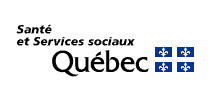COVID-19 in Eeyou Istchee
COVID-19 in Eeyou Istchee
- The COVID-19 virus is still circulating and can make people very sick.
- Make it a habit to follow recommendations and stay informed about the disease.
- Together, we can keep the circle of protection strong around our communities.
- The COVID-19 regional case count is no longer updated (since May 2023).
What is COVID-19?
- COVID-19 is an infectious disease caused by a virus called SARS-CoV-2.
- It can spread between people.
- Symptoms of an infection can be mild, moderate or severe. Some people may become very sick and require hospitalization.
- Older people and people with underlying medical conditions like diabetes, cardiovascular disease, chronic respiratory disease or cancer are more likely to develop serious illness.
How does COVID-19 spread?
- The virus can spread from an infected person's mouth or nose through large or small droplets when they cough, sneeze, speak, sing or breathe.
- COVID-19 can also spread by touching something that has the virus on it, then touching your mouth, nose or eyes with unwashed hands.
- People can catch the COVID-19 virus, carry it, and spread it to others even if they don't have any symptoms.
Symptoms of COVID-19 and other respiratory infections
- Fever (38°C or higher)
- Coughing
- Loss of taste or smell
- Sore throat
- Nasal congestion (runny nose, sneezing, feeling stuffy)
Symptoms can vary from one person to the next depending on age, medical conditions, and virus variants.
Some people may have mild symptoms or no symptoms at all (asymptomatic).
Other people may become very sick and need to be hospitalized.
On average, it takes 5 - 6 days for symptoms to develop after someone is infected. It can also take up to 14 days for symptoms to develop.
Measures to prevent COVID-19 and other respiratory infections
1- Update your vaccination
- Vaccination offers a strong layer of protection against respiratory infection, spreading infection to others, and severe illness.
- Vaccine protection fades with time. It’s important to get a COVID-19 booster and flu shot this year.
- Vaccination against pneumococcal infections is also available in Eeyou Istchee.
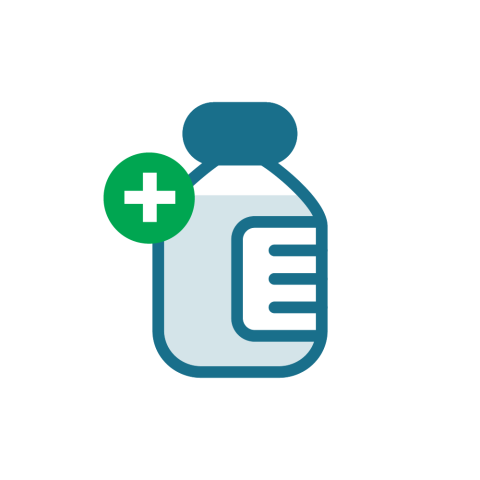
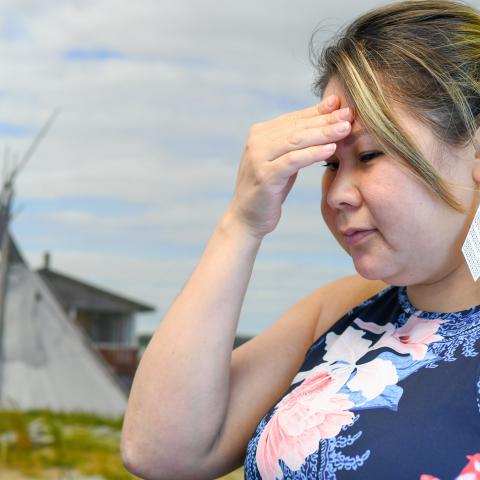
2- Monitor your symptoms
- Monitor symptoms of respiratory infection, such as fever, cough, loss of taste or smell, sore throat and nasal congestion.
- If you have a fever, use a thermometer to monitor your temperature. If you don’t have access to a thermometer, symptoms of a fever include feeling feverish and/or chills.
- Tell people you have contact with that you may be contagious. They can monitor themselves for any symptoms and take precautions.
- Monitor yourself for any symptoms.
- If symptoms develop, follow the steps listed here to reduce the risk of spreading infection to other people.
If you’re providing essential support to someone who is immunocompromised, and either they or you have symptoms:
- Make sure to ventilate the room(s) you’re working in.
- Be very careful about wearing a medical mask that covers the nose and mouth.
- Keep a distance from the person you’re supporting, whenever possible.
- Limit the time you spend with them.
- Wash your hands frequently.
- People who are critical, essential workers should follow specific instructions from their employer if they have close contact with someone who has COVID-19 or another respiratory illness.
- Some workplace situations have mandatory prevention measures in effect. Contact your manager to get updated information about measures in effect in your workplace.
3- When you're sick: Reduce contact and activities
For 10 days after symptoms develop, we recommend these measures:
- Keep your distance from other people as much as possible.
- Avoid contact with vulnerable people, including the elderly, people with immunocompromised conditions and other health problems.
- Choose remote activities, if possible, like telework.
- Avoid non-essential social events.
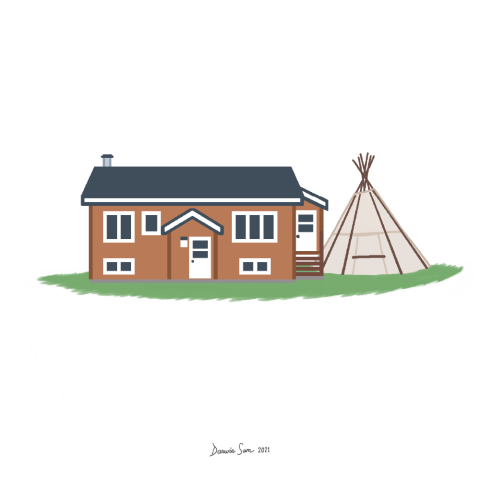
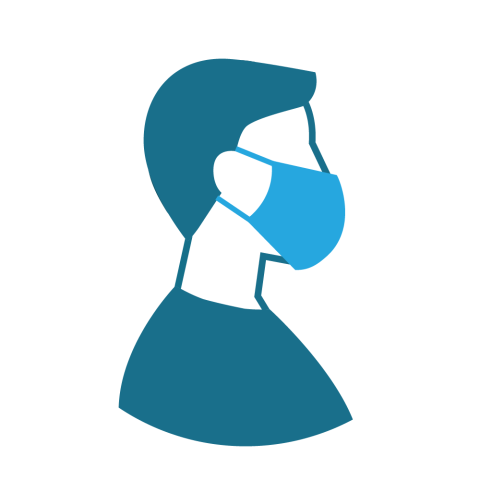
If your symptoms include a fever and/or cough:
- Stay home and avoid close contact with other people as much as possible until your fever and cough have cleared up for 48 hours (without the use of medicine like Tylenol).
- After your fever and cough have cleared up, you can resume reduced activities for the 10-day precaution period.
- If you can’t avoid close contact while you have a fever and/or cough, wear a medical mask indoors and wash your hands regularly.
If you only have a sore throat or nasal congestion:
- Wear a medical mask in public indoor places.
- As much as possible, avoid direct contact for greetings, such as handshakes, and opt for alternative practices (e.g. fist bumps).
- If you have to go to work, school, or daycare, notify the head of the establishment that you have symptoms of a respiratory infection.
- Follow the measures in place at the establishment.
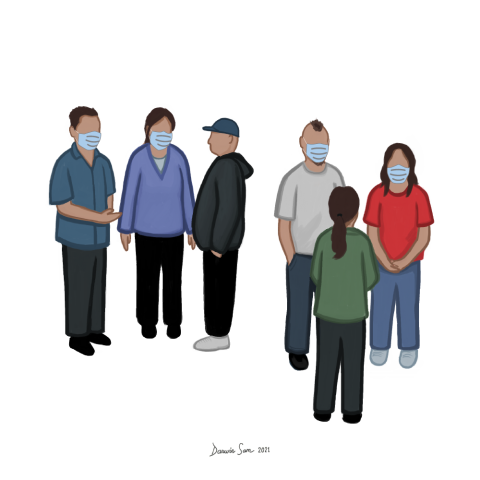
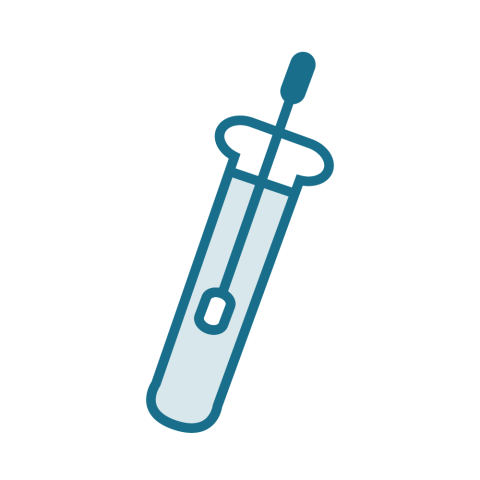
4- Take a COVID-19 rapid test
COVID-19 rapid tests help determine if you have a COVID-19 infection.
Rapid tests are recommended IF you have symptoms AND are:
- 60 years or older.
- Immunocompromised (because of chemotherapy, an organ transplant recipient, taking immunosuppressant medication, on dialysis, etc.)
- 18 and older and have a chronic health condition (diabetes, hypertension, liver or kidney disease, respiratory disease, etc.)
- Pregnant.
If you test positive for COVID-19, you may benefit from antiviral treatment (Paxlovid).
Antiviral treatment (Paxlovid)
- Antiviral treatment can help reduce the risks of severe illness and hospitalization after you're infected with COVID-19.
- If you are in at higher risk and you test positive for COVID-19, call your CMC to talk with a healthcare worker about antiviral treatment.
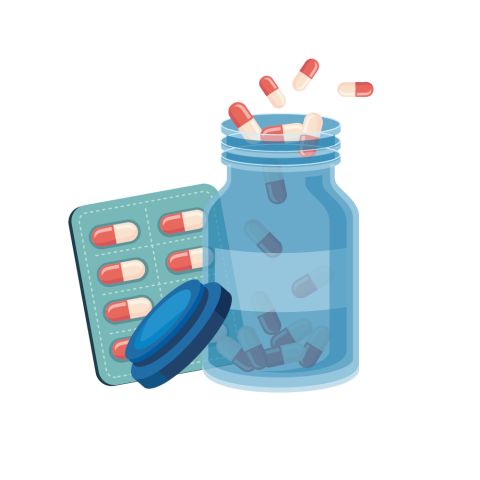
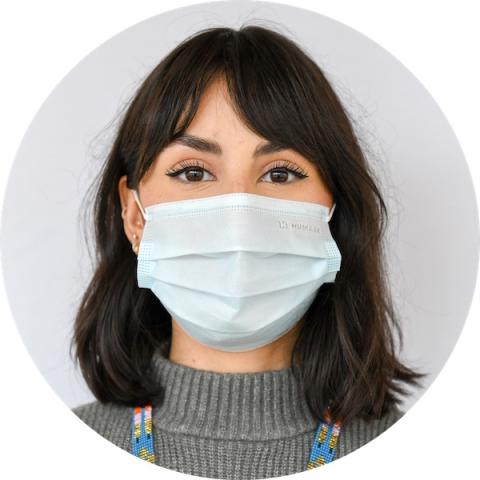
5- Wear a mask when needed
Wearing a medical mask that covers your nose and mouth helps reduce the risk of spreading respiratory infection while you’re contagious.
Wearing a mask also protects you from other people who may have a respiratory infection.
Wearing a medical mask while indoors in public places is recommended for:
- People who have symptoms of respiratory infection (cough, sore throat or nasal congestion).
- People with weakened immune systems.
If you have symptoms and can’t wear a mask, avoid all contact with people who are immunocompromised.
6- Cough into a tissue or your elbow
When you cough or sneeze:
- Cover your mouth and nose with tissue paper or your arm (not your hands) to reduce the spread of germs.
- Throw the tissue away in a garbage can as soon as possible. Wash your hands afterwards.
7- Wash your hands
- Wash your hands regularly with water and soap for at least 20 seconds.
- Disinfect your hands with an alcohol-based solution if you don’t have access to soap and water.

8- Ventilate your home
- During gatherings, make it a habit to open the doors and windows to create a current of fresh air.
- Even if it’s cold or humid outside – opening a window for just a few minutes at a time will help circulate fresh air.
Since the start of the pandemic in March 2020
- Total reported cases in Eeyou Istchee: 7,630
- Total hospitalizations: 103
- ICU hospitalizations: 25
- Deaths: 20
Please note:
- A person is considered to have died of COVID-19 if they had symptoms compatible with the disease before their passing and tested positive by a PCR test.
- People who, before passing, had symptoms compatible with COVID-19 and were a high-risk contact of a laboratory-confirmed case are also considered to have died of the disease, if there is no other obvious cause of death.
- Quebec records COVID-19 related deaths regionally based on peoples’ primary residence when they passed.
- This means that COVID-19 related deaths added to Region 18 only include people who lived in Eeyou Istchee (as their primary residence) at the time of their passing.
- Quebec’s reporting of COVID-19 related hospitalizations is also by region, and is based on peoples’ primary residence.
- The Cree Health Board is aware of Eeyouch/Eenouch who lived outside of Eeyou Istchee when they passed away.
- These people are not reflected in Quebec’s reported COVID-19 for Region 18. They are included in the region of their primary residence when they died.
- The Cree Health Board is also aware of Cree patients living long-term outside of Eeyou Istchee who have tested positive for COVID-19, and are, or have been hospitalized.
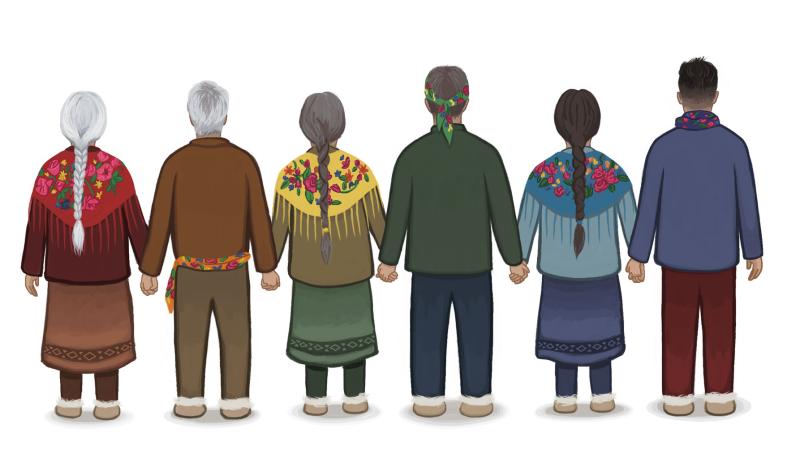
The Wîchihîwâuwin Helpline provides a safe space for people who need to talk on the phone about any difficult situation concerning their well-being
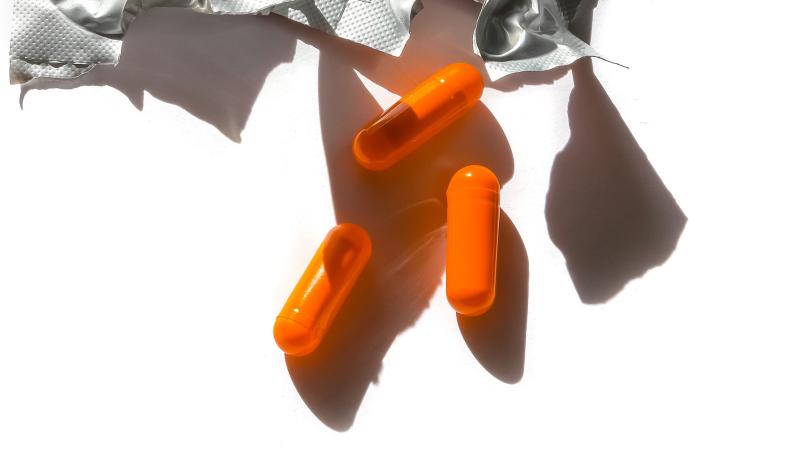
Antiviral treatment is available in Eeyou Istchee for people with COVID-19 who are at higher risk of severe disease and hospitalization.
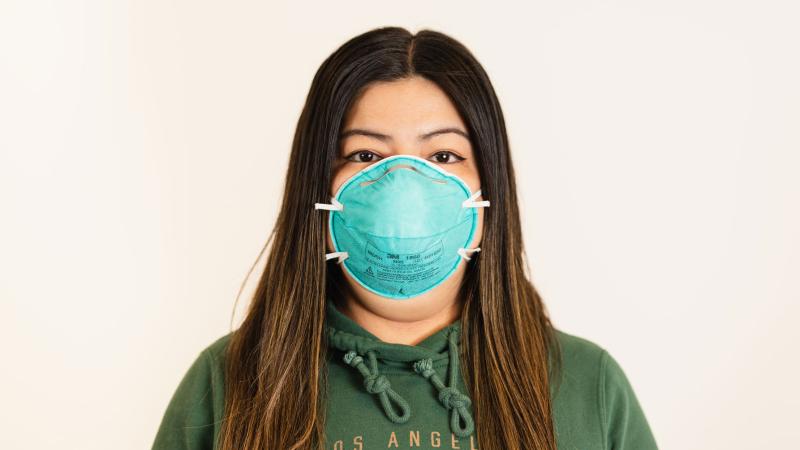
The Cree Board of Health recommends you wear a mask in certain situations to protect yourself and people around you.
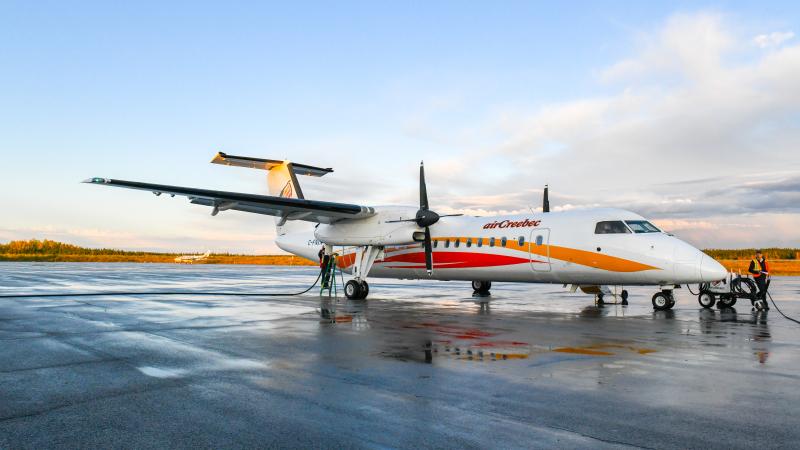
Passengers taking CHB charter flights are recommended to wear a medical mask while travelling.

It is important to look after yourself. Self-care is part of staying balanced and healthy, emotionally, spiritually, mentally and physically.

COVID-19 pandemic has disrupted many customs and practices in Cree culture, including grieving & mourning loved ones who have passed.

